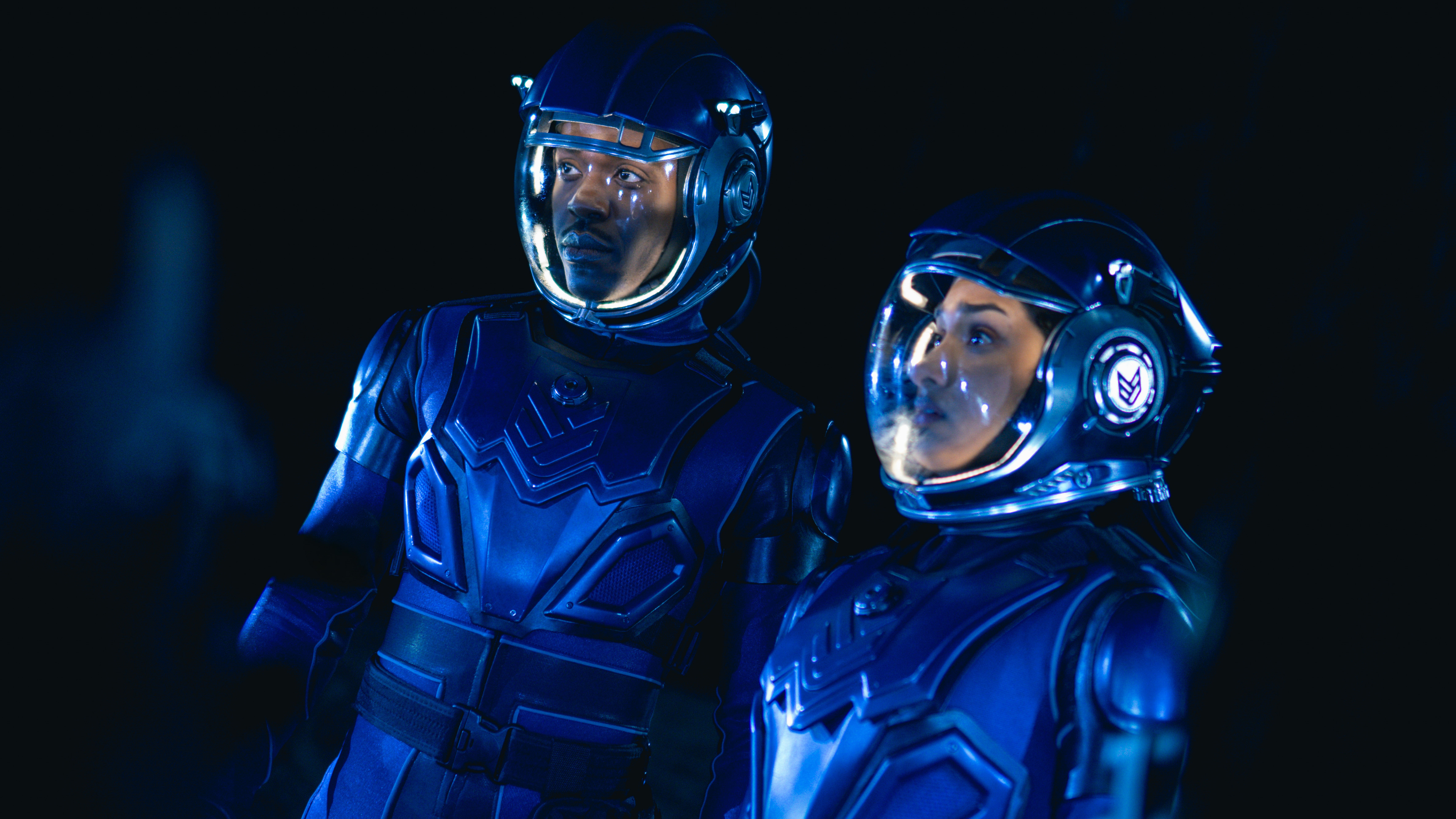The beautifully horrific apocalypse of Metro Exodus is the perfect showcase for Xbox One X
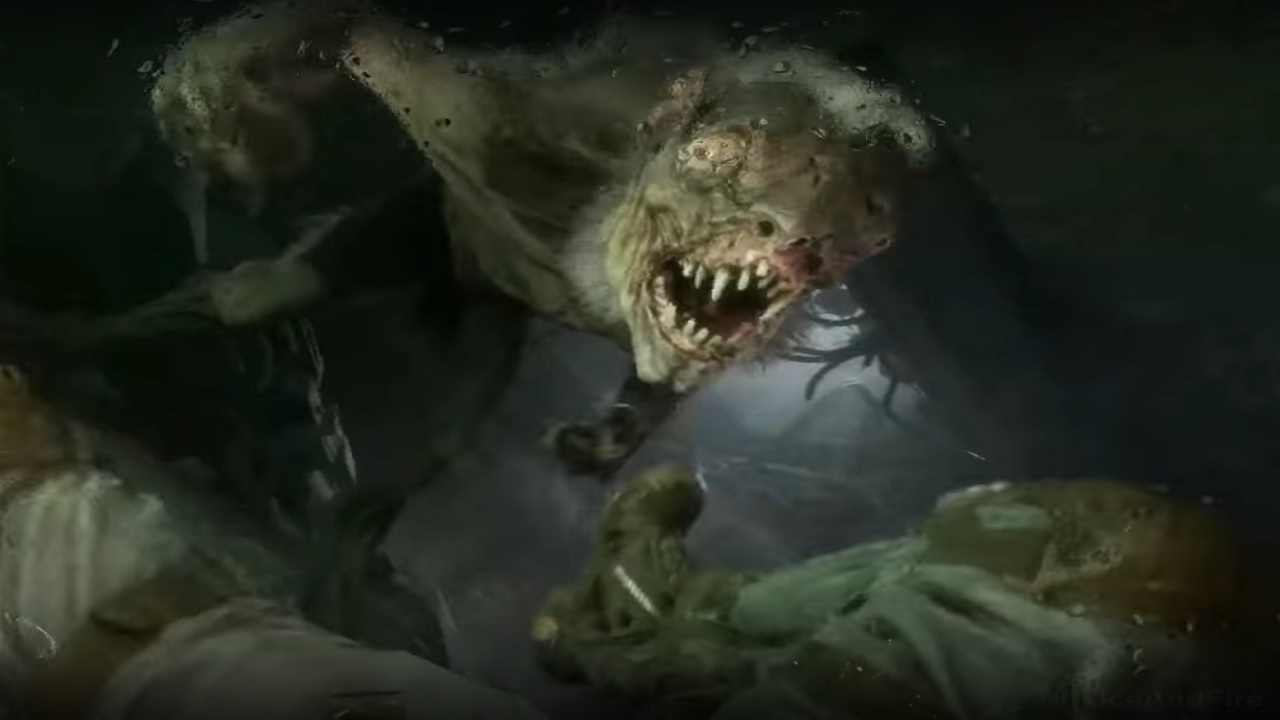
One of the most pleasant surprises to emerge from Microsoft’s frenzy of reveals at the Xbox E3 2017 conference was Metro Exodus, a return to the post-nuclear apocalypse Russia so wonderfully realized in the two previous titles. Metro fits particularly well into the Xbox portfolio with its focus on gritty shooting - Xbox has long been tagged as the shooter box, a reputation it’s earned with exclusives like Gears of War and Halo and long term partnerships with the Call of Duty franchise and Activision. But it also suits Microsoft’s initiative to grab a share of the PC market, and even blur the lines between Windows 10 and its console. Metro has a strong legacy of excellence on PC, and is in the minds of many fans a PC first franchise, so Microsoft being able to trot it out during its press conference and be first to pull back the curtain on its existence is a nice card for its PC strategy deck.
Exodus promises an epic campaign sprawling across an entire year, with more open-world and exploration elements than the previous games (which were largely linear). But for me the big attraction of a new Metro is the opportunity to dive back into that bleak, incredibly detailed world first envisioned by author Dmitry Glukhovsky in the novel Metro 2033 on which the first game is loosely based.
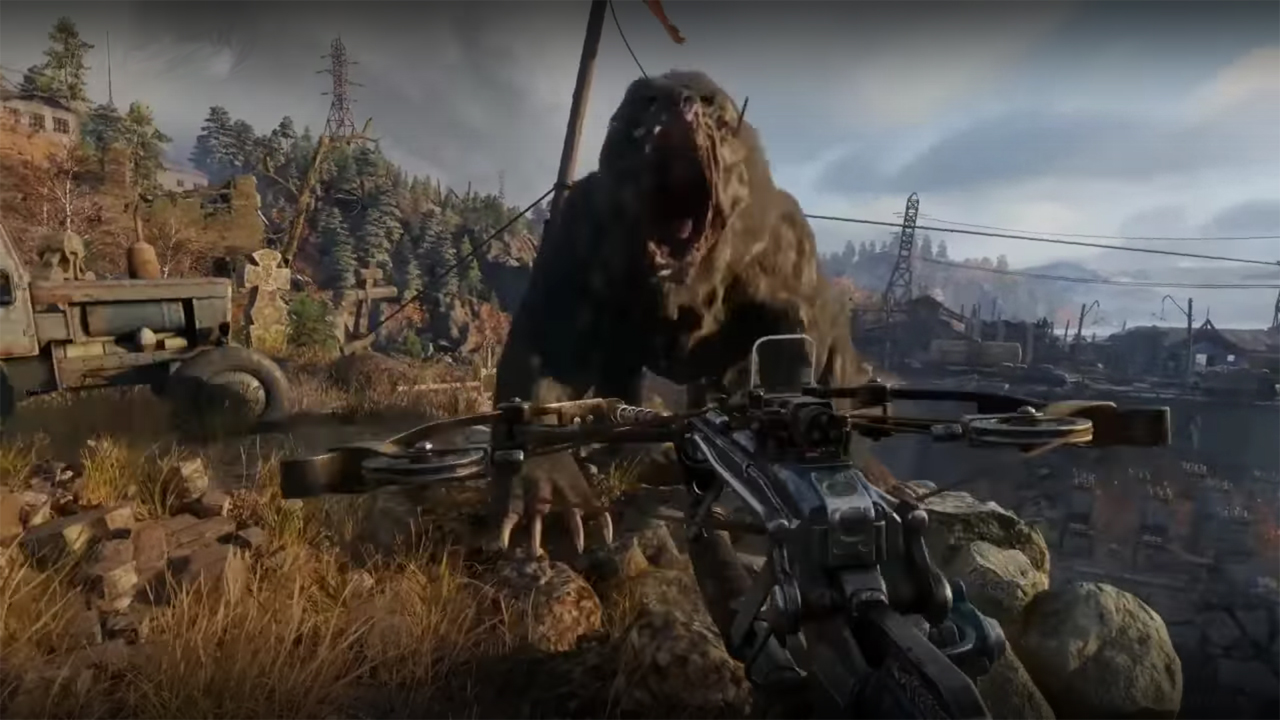
The setting of both novel and the games has always been one of the most cohesive apocalypses in modern fiction, and while the first two games were more constrained than games like Fallout, the narrow focus allowed for a handcrafted feel to the environments and characters that made everything feel unified and bespoke. And the sort of grim realities Metro presents feel more at home on Xbox that Fallout’s 50s retro-futurism. As a console so closely associated with games like Gears of War, the grit of the Metro setting suits it extremely well.
But there’s a hard division between the dank, gloomy underground sections in the tunnels of the Russian metro system, populated by dangerous monsters or even more dangerous people, and the little beacons of civilizations at the metro stations that feel like a welcome relief. But even those stations are blanketed in gloom and a pervasive bleakness that often borders on hopelessness. This isn’t a friendly, cheerful world by any stretch, but it does make any glimmer of hope shine even more brightly.
And those dual worlds beneath the surface are further contrasted by the brief sequences above ground, where the world is so toxic and deadly that the player must be constantly shielded by gas masks and anti-radiation hazmat gear. The mutated fauna, particularly on the surface, has a very distinctive feel and design that make Metro stand apart from any number of similar post-apocalypse settings that have flooded gaming in recent years.
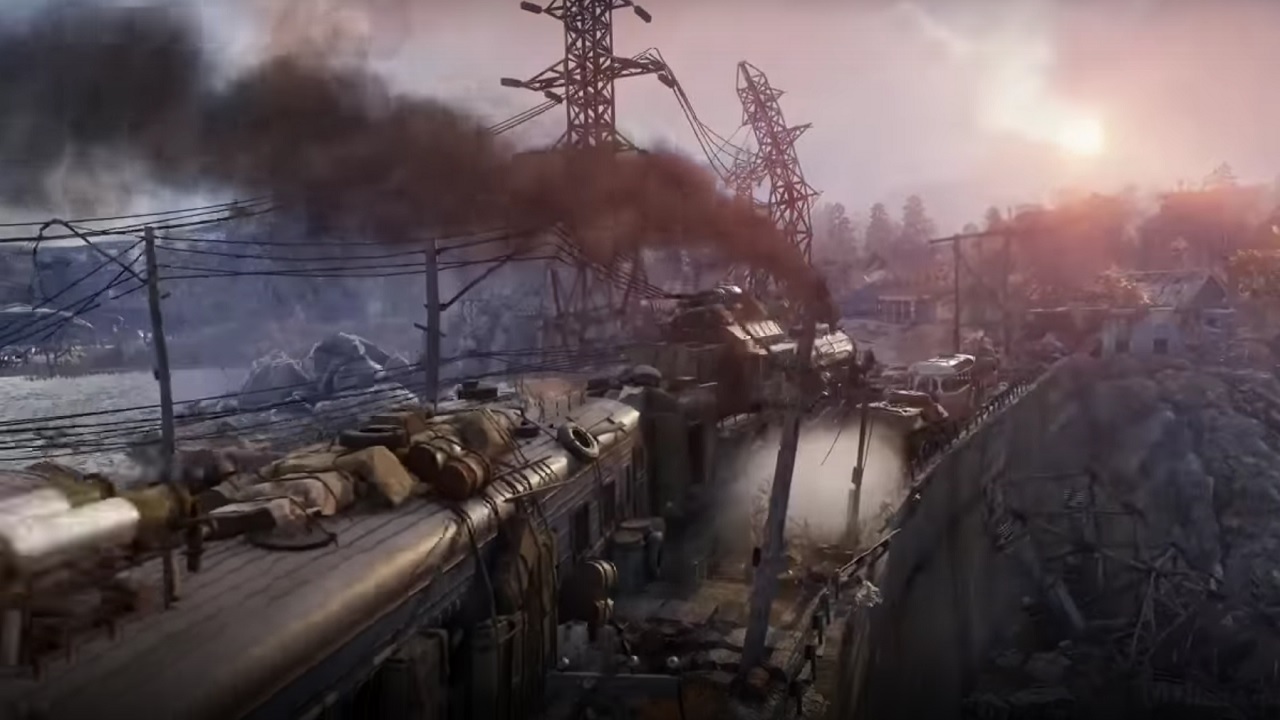
Hideous, ravening bearlike creatures and semi-intelligent gorilla mutants roam the shattered landscape in the shadow of giant flying monstrosities with wings of leathery flesh. And perhaps most sinister of all are the unfortunates who survived the nuclear fallout but were horribly twisted, men and women transformed into the psychic abominations, the Dark Ones.
Which leads into another of Metro’s interesting dimensions, the sort of low-fantasy supernatural elements that exist around the edge of this setting. From the aforementioned psychic abilities of the Dark Ones (which play a major role in the plot of both of the games, as well as the novels) to the shadow silhouettes of the dead that haunt the abandoned tunnels, to the vague and horrifying Great Door which plagues Artyom with visions and may actually be a doorway to the afterlife, Metro plays liberally with otherworldly phenomenon. But crucially, the supernatural is never crude and overt. It’s referenced subtly or obliquely, and is wrapped in enough mystery to leave most of the legwork to the player’s (or reader’s) imagination.
Sign up to the GamesRadar+ Newsletter
Weekly digests, tales from the communities you love, and more
But it’s not just the creatures that give Metro so much character, or even the huddled masses you meet in the tunnels, the people you’re striving to bring a better life (in Metro Exodus, returning main character Artyom will board a steam powered locomotive bound east in search of a new home). It’s the small touches that really bring this world to life, from the military grade ammunition that serves as both weaponry and currency in the subterranean economy, to wiping beads of condensation or splashes of blood off your gas mask as you explore the surface world.
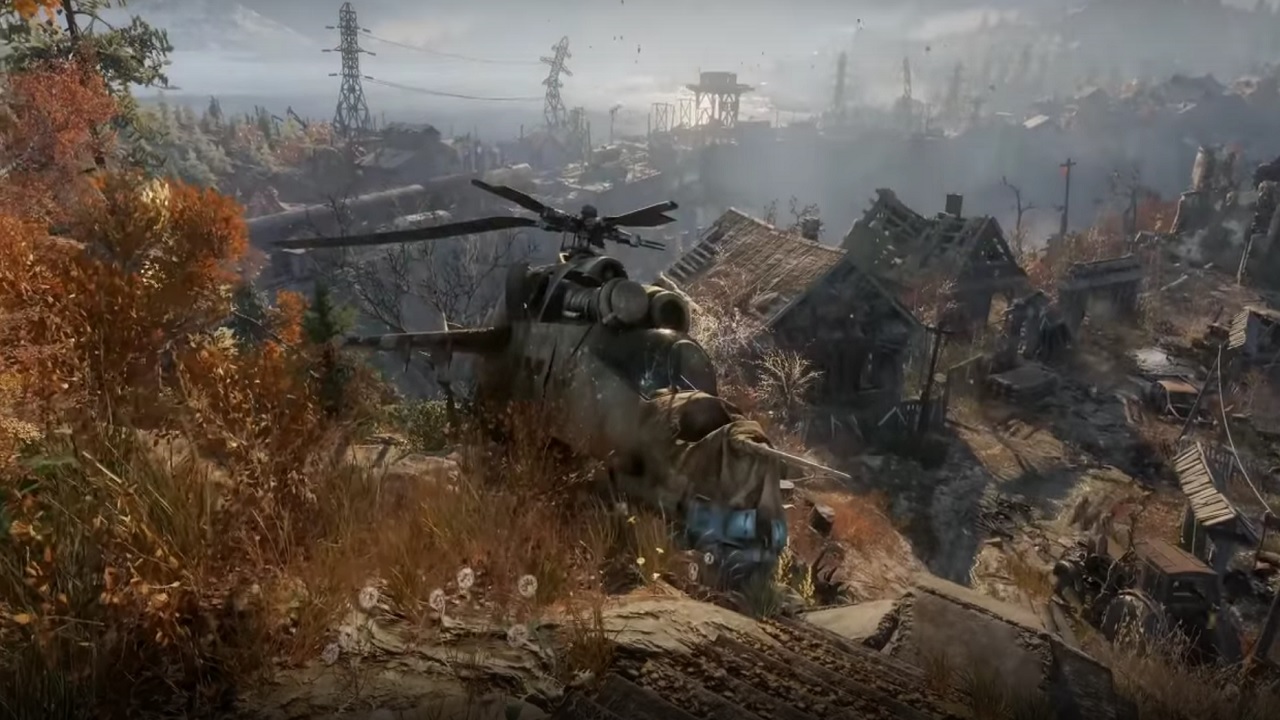
It’s a powerful idea, a portrait of humanity driven deep underground in a desperate bid for survival but then slowly, inch by inch, trying to reclaim a surface world that seems to crave our species’ extinction. And it’s the sort of game Xbox could use after they took a beating on Horizon, another very distinctive post-apocalyptic setting. Though Metro won’t be exclusive to Microsoft platforms, closely associating with them through a big press conference reveal helps link the two brands in players’ minds.
The promise of a new Metro that gives us more latitude to explore above ground (and gives the designers an excuse to use a broader palette of colors, heightening the contrast between above- and below-ground segments) is particularly invigorating given the dark, claustrophobic, sometimes oppressive atmosphere of the first two games, and that Last Light dropped more than four years ago now. The opportunity to explore more of this setting, which I’ll readily admit has been one of my favorites in the last decade or more of gaming, has me itching to dig out my pneumatic crossbow and burrow back into irradiated Russia.
Alan Bradley was once a Hardware Writer for GamesRadar and PC Gamer, specialising in PC hardware. But, Alan is now a freelance journalist. He has bylines at Rolling Stone, Gamasutra, Variety, and more.



